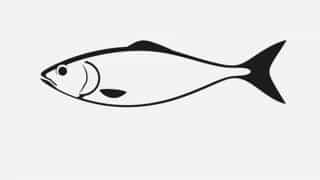At first glance, the word trollop may sound like a term related to fishing, especially to those unfamiliar with its true meaning. It might be easy to confuse it with terms like trawl, troll, or other fishing-related jargon. However, understanding what a trollop actually is, and whether it has anything to do with fish, requires a closer look into its etymology, usage, and cultural context. This topic will clarify the meaning of the word trollop, explore its origin, and explain why it is not associated with fish or fishing in any way.
Understanding the Definition of ‘Trollop’
To answer the main question directly: no, a trollop is not a type of fish. The word trollop is an English noun that historically refers to a woman regarded as being disreputable or promiscuous. It is considered a derogatory term and is typically used to insult someone’s behavior or reputation, especially from a moral standpoint. It has nothing to do with aquatic animals or the fishing industry.
Etymology and Historical Usage
The word trollop has been in use since at least the 17th century. Its exact origin is uncertain, but it may have developed from earlier words such as trull, a term that also referred to a disreputable woman or prostitute. Other linguistic theories suggest connections with older Germanic or Middle English terms.
Over time, trollop came to be used mainly in British English, often in older literature or media to portray women negatively. It was associated with lack of cleanliness, lack of propriety, or loose moral behavior. Although it is somewhat outdated in modern use, it can still be found in historical novels, plays, and period dramas.
Why the Confusion with Fish?
The confusion between trollop and fish may stem from a few linguistic coincidences. There are fishing terms that sound similar, such as:
- Trolling: A method of fishing where baited lines are drawn through the water.
- Trawl: A large net used to catch fish by dragging it through the sea.
- Troller: A fishing boat used in trolling.
These words sound phonetically close to trollop, especially to non-native English speakers or children learning the language. However, trollop shares no direct connection with these fishing terms. The semantic fields are entirely different, and any similarity is purely coincidental.
Context Matters in Language
Understanding the context in which a word is used is crucial for interpreting its meaning correctly. Trollop is used almost exclusively in social and moral discussions, not in biological or environmental ones. If someone uses the term in a conversation about people or character traits, it clearly refers to a person, not a sea creature. Conversely, fishing discussions will never use trollop to describe a method, equipment, or species.
Similar-Sounding Words with Different Meanings
English is full of homophones and near-homophones words that sound similar but mean entirely different things. Here are a few examples relevant to this topic:
- Trout: A common type of freshwater fish, often confused in pronunciation with unrelated words.
- Troll: In addition to its fishing meaning, this word also refers to mythical creatures or online troublemakers.
- Trollop: Again, a derogatory term for a woman, with no aquatic meaning.
Because of these similarities, it’s understandable that confusion might arise, but checking a dictionary or understanding the context can easily clear up any misunderstanding.
Modern Perception and Usage
In today’s English, trollop is considered old-fashioned and offensive. Its usage has declined significantly, especially in polite conversation. You are more likely to encounter it in literature or as a form of intentional insult. It’s important to note that using such language can be seen as sexist or inappropriate in many modern settings.
Still, the term might appear in classic novels or television series set in earlier centuries. In such cases, it reflects the social attitudes of that time and not necessarily the opinions of the narrator or writer.
Examples in Literature and Media
Many classic English writers used the term trollop to describe women who went against societal expectations. In older works of fiction, it was often used by characters to pass judgment on others. It’s also been used in period dramas and films to portray class differences or gender norms.
Although it might seem like an antiquated term, understanding its usage can provide valuable insight into how language reflects social values, particularly concerning gender and behavior.
Is a Trollop a Fish?
the answer is clear: a trollop is not a fish. It is a human-related term, specifically a derogatory label for a woman perceived as immoral or unkempt. The similarity in sound to fishing terms such as troll or trawl may cause confusion, but the meanings are entirely unrelated. Knowing the correct definition is essential for avoiding misunderstandings, especially in language learning or cross-cultural communication.
English can be tricky, with many words that sound alike but mean different things. That’s why it’s always a good idea to check a reliable source or ask questions when uncertain. By doing so, we avoid the pitfalls of mistaken identity in this case, mistaking a word used for moral judgment as the name of an aquatic animal.
To summarize, while the word trollop might sound like it belongs in a conversation about fishing, it actually belongs in discussions of historical language, social attitudes, and gendered expressions. So next time you hear the word, remember: it has nothing to do with fish and everything to do with how language evolves over time.
